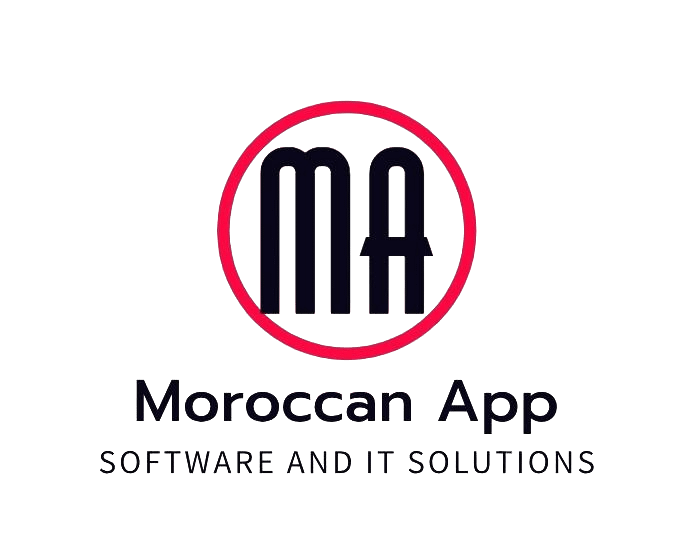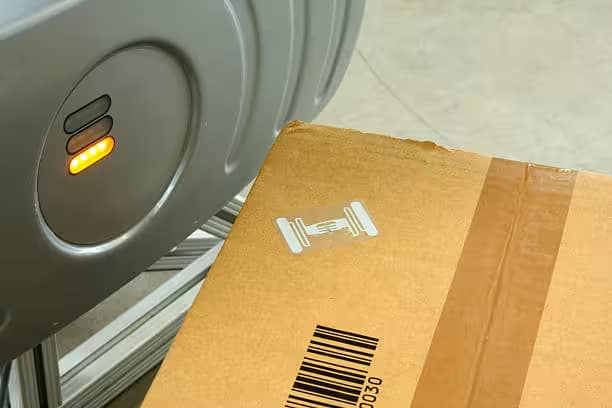RFID technology is rapidly transforming the business landscape in Morocco. Moroccan companies are adopting this radio frequency identification solution to improve their operational efficiency. This technology is becoming a key element of digital transformation in several sectors, from agriculture to logistics.
This comprehensive guide examines the practical applications of RFID in Morocco and its benefits for businesses. Readers will discover the steps to implement an RFID system, best practices for inventory management, and solutions tailored to Moroccan SMEs. The article also addresses the current challenges and future prospects of this technology in the Moroccan context.
Understanding RFID Technology
Radio Frequency Identification (RFID) represents a major advance in the field of automatic identification. This technology uses radio waves to store and retrieve data remotely, offering remarkable possibilities for managing and tracking objects.
The RFID system is based on two essential components: tags (or labels) and readers. RFID tags, consisting of an electronic chip and an antenna, can store up to 64,000 bits of data, allowing precise and detailed identification of objects.
There are three main types of RFID tags:
- Passive tags: operating without a battery, powered by the reader’s energy
- Semi-active tags: equipped with a battery for power the circuit
- Active tags: equipped with a battery allowing reading up to 100 meters away
RFID technology is distinguished by its ability to read hundreds of tags simultaneously per second, without requiring a direct line of sight between the reader and the tag. Data can not only be read but also modified or rewritten, providing exceptional flexibility in information management.
A complete RFID system also integrates a middleware that processes the collected data and transmits it to the company’s information system. This architecture allows for automated and efficient data management, contributing to improved traceability and inventory management.
RFID Applications in Morocco
In Morocco, RFID technology is revolutionizing many sectors of activity, offering innovative solutions for operations management. In the supply chain field, this technology enables real-time visibility and efficiency, eliminating errors throughout production, warehousing and distribution operations.
The main applications of RFID in Morocco include:
- Automated inventory management
- Real-time asset tracking
- Protection against theft and counterfeiting
- Optimizing the supply chain
- Improving the customer experience
In the industrial sector, RFID allows companies to track their products at every stage of production and marketing. RFID tags offer significantly greater storage capacity than traditional barcodes, allowing to process up to 100 tags per second.
The technology is also transforming retail. Moroccan retailers are using RFID to automate their inventories and reduce stockouts. RFID gates installed at the entrance and exit of stores provide effective protection against theft. This solution not only optimizes inventory management but also significantly improves the customer purchasing experience.
In logistics, Moroccan companies are seeing a significant improvement in their operational efficiency. The technology makes it possible to synchronize physical flows with information flows, providing complete traceability and better anticipation of supply chain malfunctions.
Implementation of an RFID system
Implementing an RFID system requires a methodical and well-planned approach to ensure its success. Companies should follow a structured process that begins with a thorough pre-study phase to choose the RFID technology that best suits their specific needs.
Essential implementation steps include:
- Clear definition of objectives and needs
- Choosing the technology appropriate
- Analysis of the installation environment
- Setting up a pilot project
- Training staff
- Large-scale deployment
To ensure successful integration, several critical factors must be considered:
- Compatibility with existing systems
- Proper training of teams
- Adaptation of operational processes
- Continuous technical support
End-user involvement is crucial, because the best technological system only works if users comply with its operating mode. Success is based on the combination of three fundamental parameters: the choice of the appropriate RFID standard, the establishment of a precise operating mode, and effective change management.
The reliability rate of the system can be optimized thanks to a well-defined and integrated operating mode. Companies must also plan the modification of the activity’s IT management system and promote the rapprochement of several actors around the RFID project.
Challenges and future prospects of RFID in Morocco
Despite its transformative potential, the deployment of RFID in Morocco faces several significant challenges. The implementation cost remains a major obstacle, with RFID tags costing between ten cents and one euro, five to ten times more expensive than traditional barcodes.
Key technical challenges include:
- Signal interference in industrial environments
- Protection and security of collected data
- Integration with existing management systems
- Staff training and skills development
Nevertheless, the future prospects are promising. The market for IT equipment for logistics in Morocco is experiencing an impressive growth of 30% to 40% per year. The country’s strategic geographical position, including its proximity to the Eurozone, offers significant opportunities for the expansion of RFID technology.
Environmental ambitions are also supporting RFID adoption, with national targets to reduce CO2 emissions by 35%. This technology is perfectly aligned with the national strategy for the development of logistics competitiveness, which emphasizes modernization and operational efficiency.
The Tanger-Med port plays a crucial role in this transformation, serving as a strategic hub for the flow of goods to Europe, America, West Africa and Asia. This infrastructure, combined with the flexibility of the Moroccan workforce, positions Morocco as a key player in the adoption of RFID technologies on a regional scale.
Conclusion
RFID technology marks a decisive step in the modernization of Moroccan companies. Radio frequency identification solutions demonstrate their added value across various sectors, from inventory management to product security. The positive results observed in companies that have adopted this technology confirm its essential role in improving productivity and reducing operational costs.
Morocco is positioning itself as a major player in the adoption of RFID technologies in Africa, driven by its strategic geographical location and modern infrastructure. Despite the initial implementation challenges, future prospects remain promising, supported by the continued growth of the logistics market and government initiatives in favor of digital transformation. Moroccan companies that are investing in RFID today are giving themselves the means to effectively meet the growing demands for traceability and operational efficiency.
FAQs
Q: How can I use an RFID card?
A: To use an RFID card, simply pass it in front of an RFID reader. This contactless system allows, for example, to recharge an electric vehicle while securing access and payment.
Q: What are the steps to activate RFID on a device?
A: To activate RFID, you must first activate the network on a smartphone via the Settings/Networks menus. Then, install an application like NFC Tools on Android, bring the smartphone within 10 cm of the RFID tag and program the desired action.
Q: How does RFID access work?
A: The RFIDpassive, which does not have a battery, works in read-only mode. The reader sends an electromagnetic signal to the RFID chip, which activates the chip and allows the information it contains to be read.
Q: How does an RFID badge work?
A: An RFID badge contains a chip that is activated by radio waves emitted by a reader. The reader, which can be fixed or mobile, interrogates the badge which then returns the requested data.






